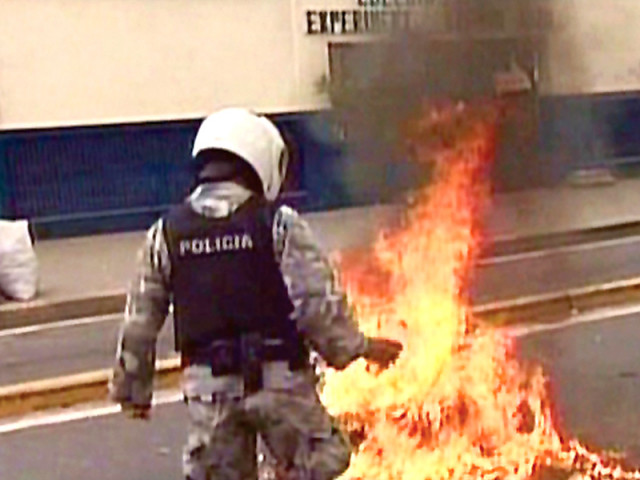6th Mini INPUT: Our past and other problems
The 6th Mini INPUT festival showcases the political struggles in different countries.

6th Mini INPUT: Our past and other problems
The 6th Mini INPUT, a short film festival which kick-started on March 12 at the Goethe Institut, is an ode to the political upheavals faced in recent times in Ecuador (Republic in South America) and North Korea. The film festival that will run till March 16 revolves around Yodok concentration camps and its survivors who fled to South Korea to start their life from scratch.
Additionally, there were two short films that focused solely on Pakistan and discussed issues dominant in third world countries such as environmental problems and underprivileged children.
Report on September 30
A news report covered the events of September 30, 2010 in Ecuador. The report breaks down the chronology of events that led to the manhandling of Ecuadorian president Rafael Correa by the police. Later, emergency was announced and the military intervened and rescued the president from the anarchic police.
Even though the report was intense, it failed to have an impact on the Pakistani audience because they didn’t know anything about the background of this incident that changed the face of South American politics.
It is a journalistic responsibility to make the viewers aware of the background before expecting them to watch the conclusion and form an opinion about a political tragedy.
City by the Sea
Mahira Omer’s documentary explored Karachi’s coastline and its silent suffering since the advent of industrialisation. Starting from Cape Montz and going up to Port Qasim, Omer talked to various people who are either directly or indirectly linked with the coastal area. The documentarian delved into the depths of industrialisation to how that many people believe that urban development is a dire threat to the flora and fauna of the metrapolis. Karachi, considered to be one of the mega cities of Asia, has development issues which were pointed out by Arif Hasan, an architect who commented on the construction pattern of the city in Omer’s documentary.
Sidra Hamid, a young viewer said, “It was a documentary which created awareness. I was unaware that so much urban development was taking place and was affecting the marine life.”
Yodok Stories
A Polish film-maker Andrzej Fidyk, greatly troubled by the North Korean totalitarian regime and its Nazi-style Yodok concentration camp, talks to seven individuals who escaped the camp and settled in South Korea in his documentary. Even though the film shows the survivors talk about how they communicated their inner pathos with the help of a musical performance, the project may comes across as propaganda against North Korea at some points. The documentary shows clips of musical itself which could be categorised as public activism by the survivors.
Hafsa Khateeb, a viewer said, “North Koreans couldn’t rebel while they were in Yodok camps, which is why they came up with this musical to express their inner contempt towards the dictator.”
Colour of Children
The documentary revolves around the life of five young Pakistani children, who belong to underprivileged background. The project shows how a polio patient, a balloon seller, a waiter, a street vendor life and a gypsy boy are happy in their lives despite all odds. Colour of Children is an honest short film that appreciated life in general and did not touch upon the troubles these children face on a regular basis.
Published in The Express Tribune, March 14th, 2012.



















COMMENTS
Comments are moderated and generally will be posted if they are on-topic and not abusive.
For more information, please see our Comments FAQ